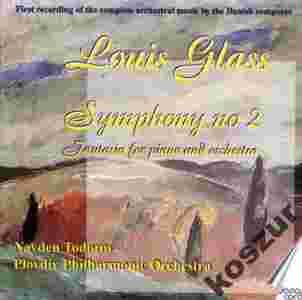Glass SYMPHONY 2 Romeo Smilkov, Nayden Todorov

Aukcja w czasie sprawdzania była zakończona.
Cena kup teraz: 39 zł
Użytkownik koszur
numer aukcji: 2290816577
Miejscowość Szczecin
Wyświetleń: 7
Koniec: 19-05-2012, 23:08
Dodatkowe informacje:
Stan: Nowy
Liczba płyt w wydaniu: jedna
Opakowanie: w folii
